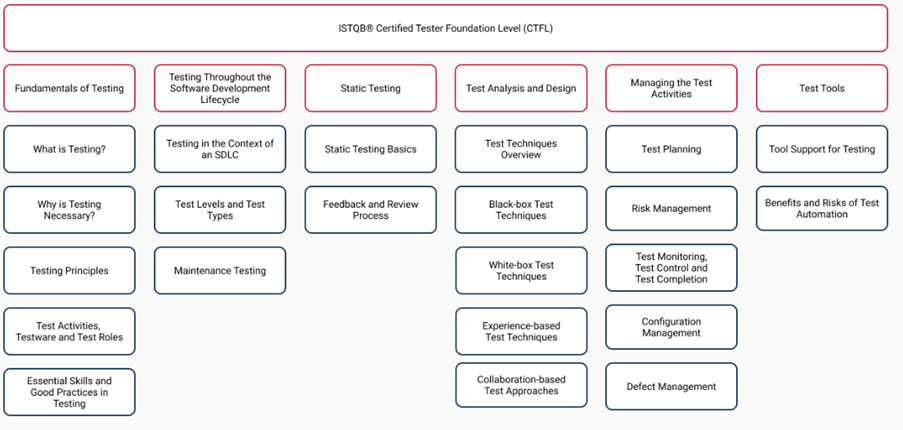The ISTQB® Certified Tester Foundation Level (CTFL) certification is the cornerstone of essential testing knowledge that can be applied to real-world scenarios. The syllabus provides a comprehensive understanding of the terminology and concepts used in the testing domain worldwide, making it relevant for all software delivery approaches and practices, including Waterfall, Agile, DevOps, and Continuous Delivery. CTFL certification is recognised as a prerequisite to all other ISTQB® certifications where Foundation Level is required.
The course requires no prerequisites to attend, however the CTFL 4.0 certification is suitable for anyone who needs to demonstrate practical knowledge of the fundamental concepts of software testing.
The Learning Outcomes expected of a candidate who has achieved the new Foundation Level certification are as follows:
This syllabus forms the basis for the International Software Testing Qualification at the Foundation Level.
Its content is not a description of the entire knowledge area of software testing.

More Information
Holders of this certification will be eligible to proceed to the next stage of the Core stream and take Test Analyst, Technical Test Analyst, or Test Management Advanced Level certifications. They may also choose to follow the Agile or Specialist streams to develop specific skills.
Join our public courses in our Istanbul, London and Ankara facilities. Private class trainings will be organized at the location of your preference, according to your schedule.